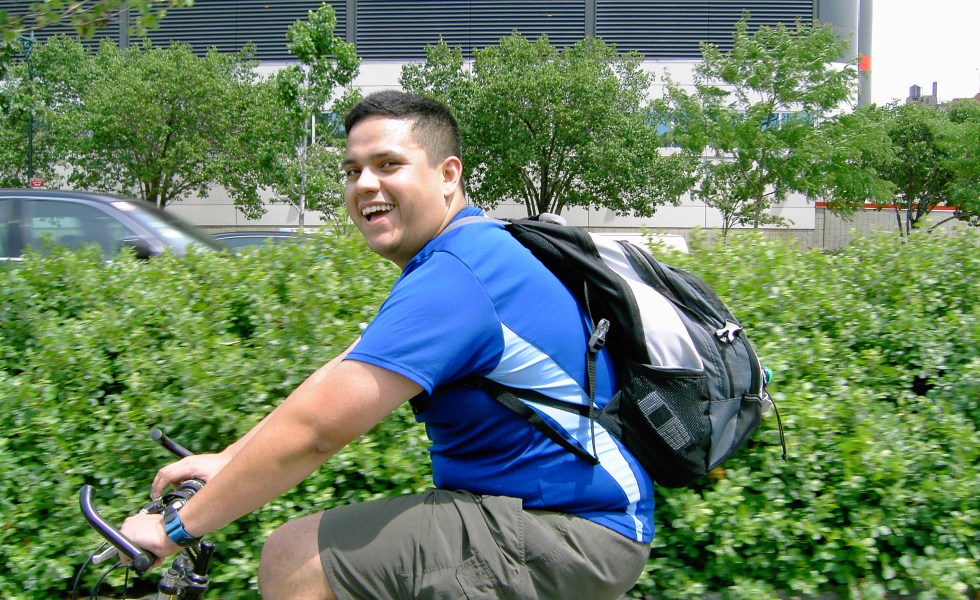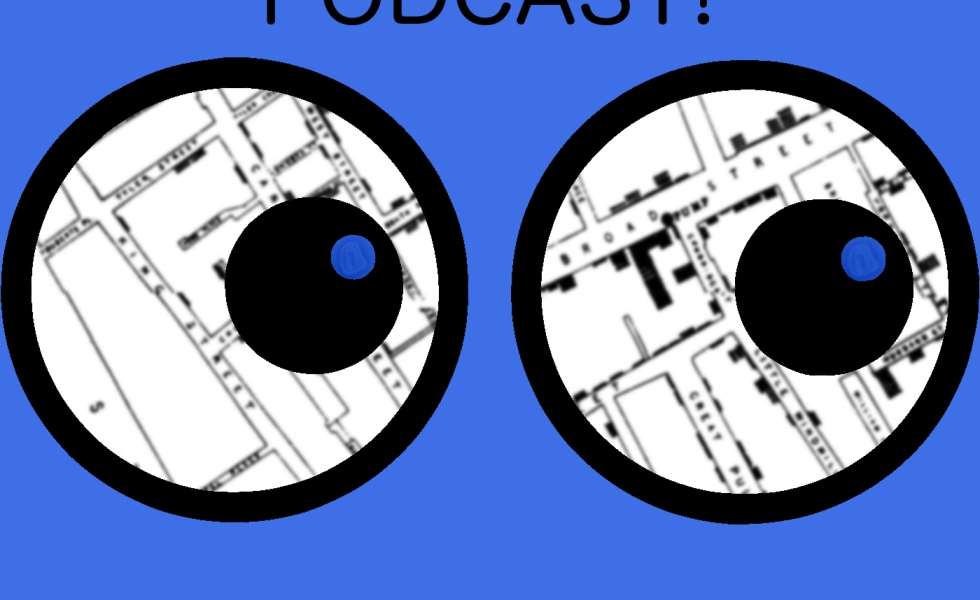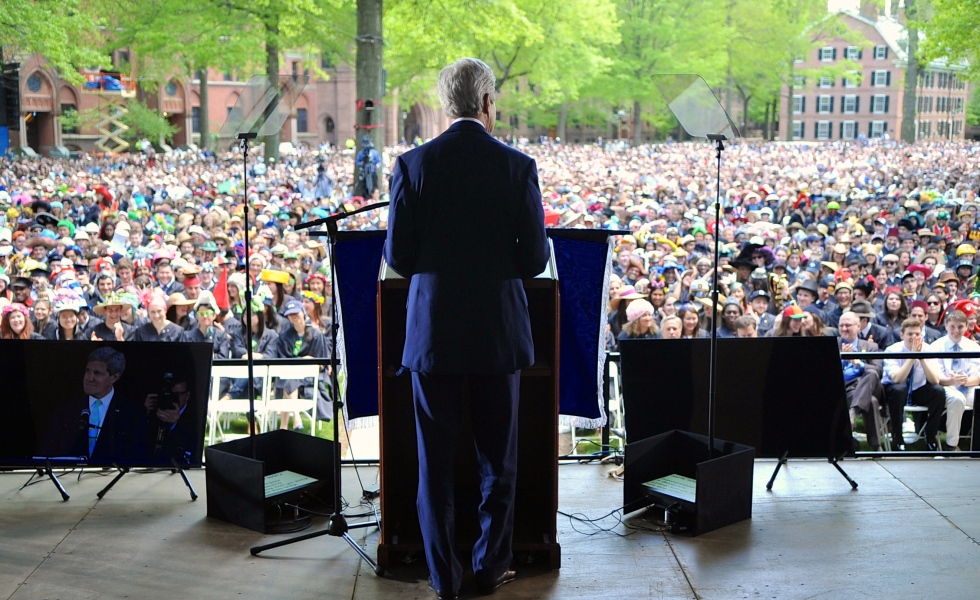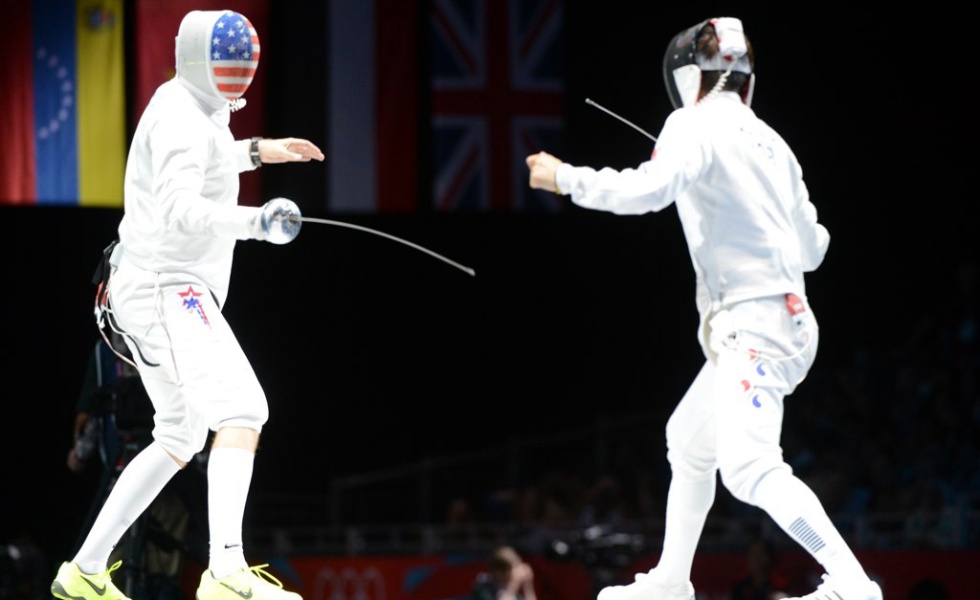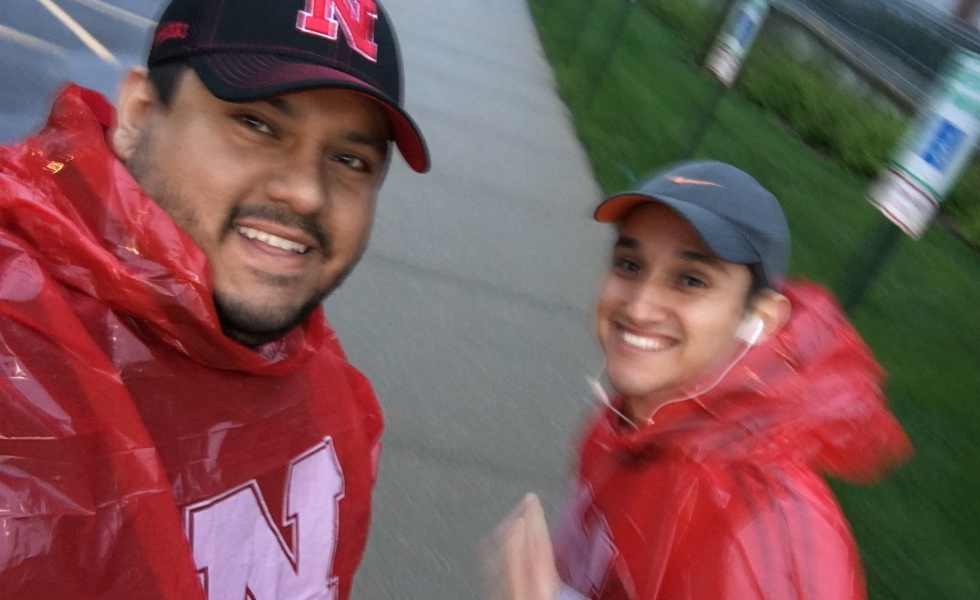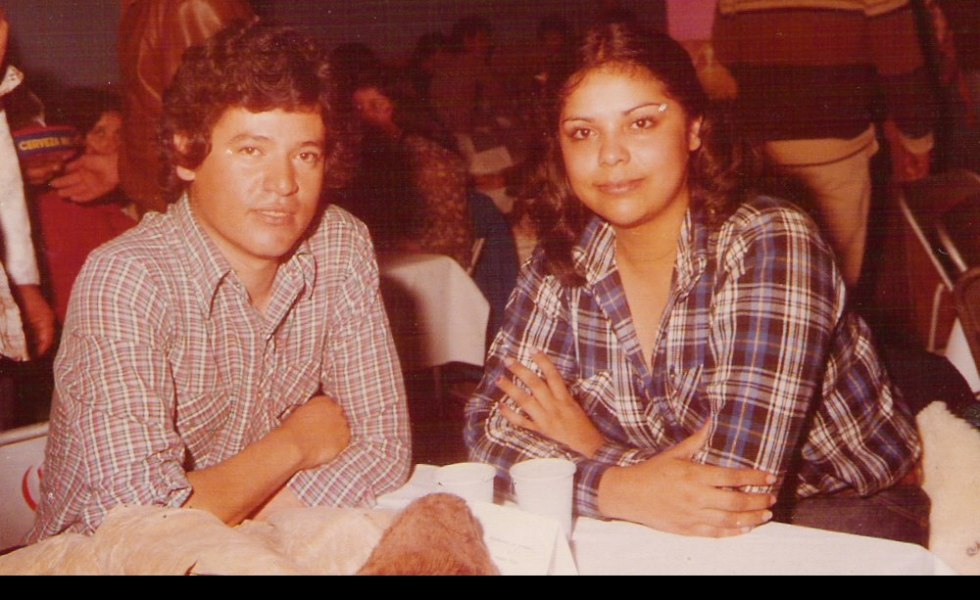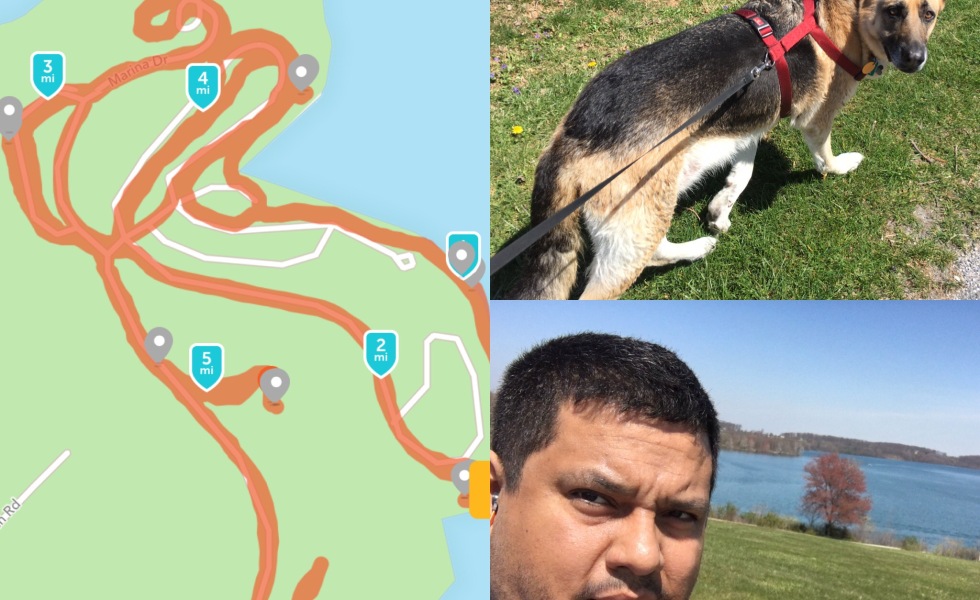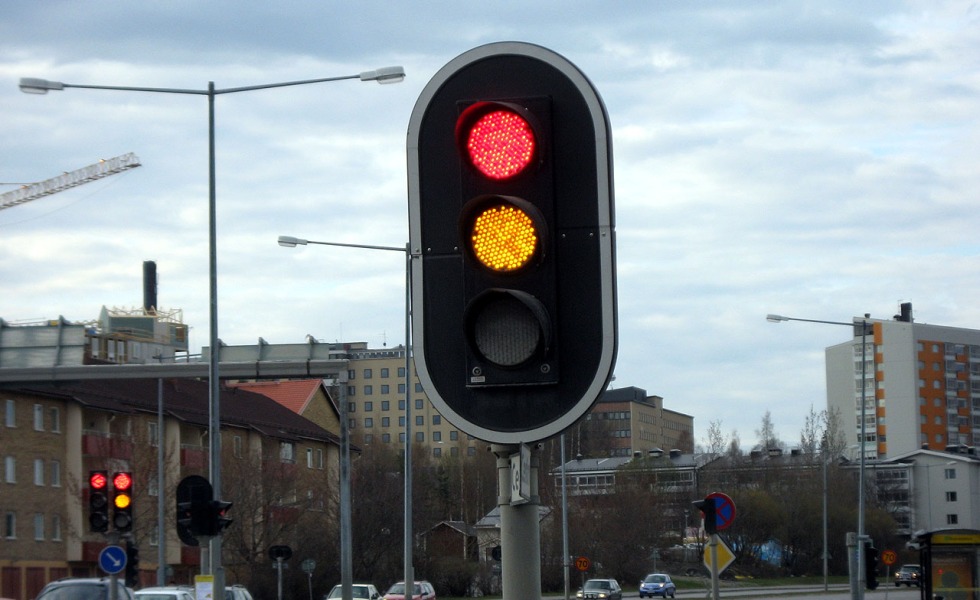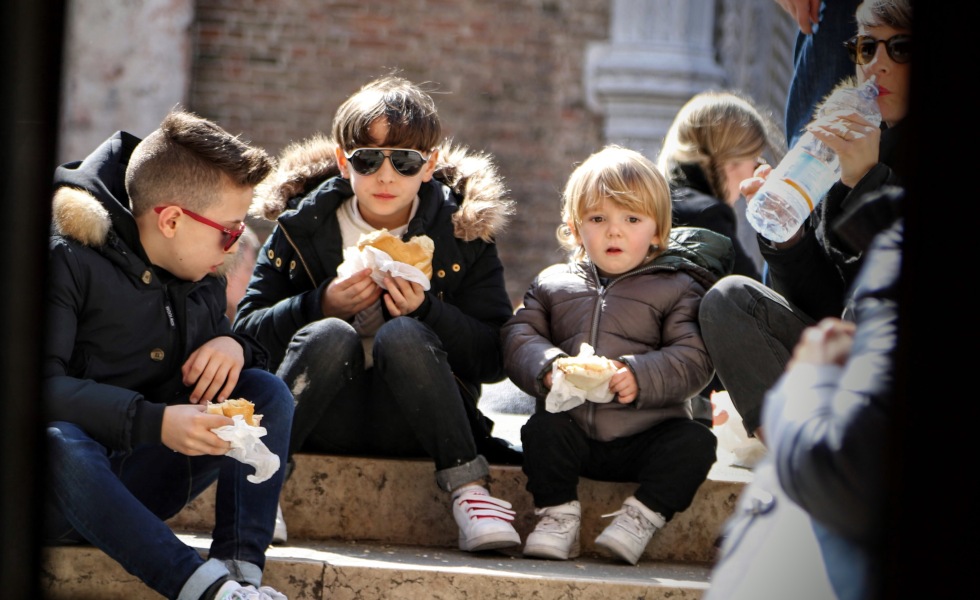Like riding a bike
Posted on May 23, 2016 7 Comments
The last time I rode a bike was ten years ago when my brother and I participated in an adventure race. (Yeah, I rode it a couple of times after that, but it was during the race that I rode it the most. I didn’t ride again after that summer.) So I was feeling a little nervous when I climbed on my new bicycle.
A couple of weeks ago, I ran the Lincoln Half Marathon in Nebraska. While I finished strong and felt great doing it, I woke up that night with a very sharp pain in my right heel. All signs pointed to a stress fracture, but there is not much that can be done other than rest it. While I’ve been able to walk better (it was touch and go for a couple of days), I’ve been wanting to get out and jog/run to get ready for the next race.
The pain in the heel came back, so I’ve decided to stay off of it from running/jogging for a while. Since I don’t want to stop completely, I went out and bought a bicycle. It’s not an expensive bike, or a cheap bike. It’s right in between and quite nice. It’s a hybrid bike (somewhere between a mountain bike and a road bike), and it’s very comfortable… At least, it should comfortable once I ride it long enough.
After being off a bike for so long, it was a little awkward at first. My sense of balance had to adjust. All the right messages had to be sent up and down my body, coordinating what I was doing. For example, did you know that you have to turn slightly to one side before you can turn to the other on a bicycle?
And did you know that we really don’t know how exactly bikes stay upright?
Yeah, it’s weird, and anyone who has ever successfully ridden a bike has experienced these effects… Unless you’ve been riding a backwards bike:
So I hope to get on and get around with the bike for a few days a week. But I’ve got to tell you, this new time on the bike felt a lot like the first time. But that’s for another blog post at a later time.
Talking Tuesday: Catch-Up Edition
Posted on May 17, 2016 2 Comments

So, yeah, it’s been a while. We haven’t chatted since the great blizzard of 2016 back in January, when I talked to you about impostor syndrome and anti-vaccine shenanigans along with some friends. So here it is, a “catch-up” edition of the Talking Tuesday. I’ll continue to try and be more proactive about recording these.
If you prefer to download the episode, just click here. Or you can subscribe to the podcasts on iTunes here.
To the Public Health Graduates of 2016
Posted on May 16, 2016 2 Comments
Dear graduates,
I am very, very jealous of all of you, in a good way. You are graduating and starting your professional careers in public health at a very exciting and challenging time. From Zika in the Americas to Yellow Fever in Africa, to MERS in the Middle East, and the refugees in Europe… Believe me when I tell you that you have your work cut out for you, and you should be terribly excited.
Here’s the thing, though. You’ve been in public health for a while now. You have influenced public health as students, or in the lives you led before you became students. This is simply the culmination of a training period in your lives where I hope you gained the skills you’ll need to keep all us moving forward into the future. Some of you will lead agencies and organizations into solving some very tough problems. Others will continue the work started by generations of public health workers whose time came and went, and the work continues. And others will venture into other disciplines — like medicine or nursing — but you will take this public health training with you and make it part of your day-to-day lives at work and at home.
I bet that you don’t see the world the same way you did just a few months or years ago, when you first became students in any of the disciplines within public health. Knowing that there are so many challenges, and just as many answers to those challenges, kind of changes you and the way you see things around you. The homeless man with tuberculosis is not a bum to you. He is the result of a set of systems gone awry. A person dying from AIDS is not a sexual deviant or someone who is paying some price for their actions. They are the result of a world full of indifference and divisiveness.
Your vision is now clearer and your focus is sharp as a tack.
But let’s get back to my jealousy. That jealousy comes from seeing all of the young faces among you when I walk the halls of the school or when I meet some of you at conferences and get-togethers. So many of you have no clue what you want to do with your lives, and that’s okay. You know that you want to help people better their lives in one way or another, and that’s a good foundation on which to build your life. Marriage, family, and all those other things will come in due time. Right now, it’s your time. Grab all the bulls in your life by the horns and enjoy the ride.
And, to those of you who are, like me, a little more “seasoned” and entered public health a little bit later in your life, I’m still just as happy for you and proud to call you a colleague. The wealth of experience you’ll bring into the profession — or maybe you already have brought it — will guide young and old around you to also make things better. You know that work-life balance is possible, and there will be plenty of “younglings” looking up to you for guidance.
Finally, I want to tell you that you need to forget your grades right now, right this instant. You have the degree. You’re golden. It’s done. And forget what school you got it from, too. Again, you have the degree. You studied the details and regurgitated the knowledge. It’s time to start accumulating the wisdom, and it will come to you regardless of your past grades or where you went to school. It will come in the daily work you do within public health, from the people you’ll meet, the places you’ll go, the people you’ll help.
You’re already heroes, so enjoy the ride. Just know that you will stumble, you will fall, but, in the end, you will join everyone in the sun. In the end, you and I and the plethora of dedicated public health workers around the world will achieve wonders. I’m sure of it.
Congratulations, and godspeed.
The 2016 Olympic Games in Rio Must Not Proceed
Posted on May 10, 2016 3 Comments
Here is some very thoughtful commentary from Dr. Amir Attaran published in Harvard Public Health Review.
http://harvardpublichealthreview.org/off-the-podium-why-rios-2016-olympic-games-must-not-proceed/
Here’s the clincher from that opinion article:
“Which leads to a simple question: But for the Games, would anyone recommend sending an extra half a million visitors into Brazil right now? Of course not: mass migration into the heart of an outbreak is a public health no-brainer. And given the choice between accelerating a dangerous new disease or not—for it is impossible that Games will slow Zika down—the answer should be a no-brainer for the Olympic organizers too. Putting sentimentality aside, clearly the Rio 2016 Games must not proceed.”
I agree. Either Zika in South America and the Caribbean is a Public Health Emergency of International Concern, in which case the games must not proceed… Or it isn’t. It is, and the games should not be carried out because the danger is real of the virus being taken back home by athletes and visitors.
Lincoln Marathon and Half Marathon. Done.
Posted on May 4, 2016 2 Comments
This last weekend, I had the pleasure of meeting my brother in Lincoln, Nebraska, as we finished a months-long plan to run the Lincoln Marathon. (I would run the half. He would run the full marathon.) Mom and my little sister came along to cheer us on, so I got to see them as well. My brother and his girlfriend (who is a lovely young woman, by the way) hosted me in their apartment.
It was nice to see them all.
Alright, so the day was very gloomy. There was a lot of rain along the way, from heavy mist to a quick-but-intense downpour. My brother lined up to run in the 8-minute mile group while I lined up at the very back of the pack, where I always line up. That way, I will always be catching up to people, especially the walkers.
It took a good half hour for me to get to the starting line, but, once I got there, I started running at a good clip (about 12-minute miles, which is fast for me) for the first half mile. Then I slowed down to a jog/walk. I would repeat this until mile number ten. That was my strategy. I wasn’t going to run myself out the whole way. I was there for fun.
Except that mile number nine had a big hill in it, and the road was a little worn out. So I managed to twist my left ankle a bit. From there to mile 11, I walked more than I jogged. It was around that time that my brother’s girlfriend notified us via instant messenger that he was a couple of miles away from finishing, so I decided to turn on the afterburners. I ended up finishing strong.
The course was nice and flat for most of the time, except between miles nine and eleven. Then it’s a big of an upward push, which, at that distance, you feel like it’s more inclined than it really is. The rain and the low temperatures actually helped a little bit by keeping us cool. If it were a little bit warmer, and just as humid, it would have been intolerable to run this race.
All in all, it was a good run. I’m very proud of my brother for achieving his first full marathon, and I’m proud of myself for finishing really strong… Even if I did end up waking up that night with an intense pain in my foot which may or may not be a stress fracture. (I’ll heal soon enough.)
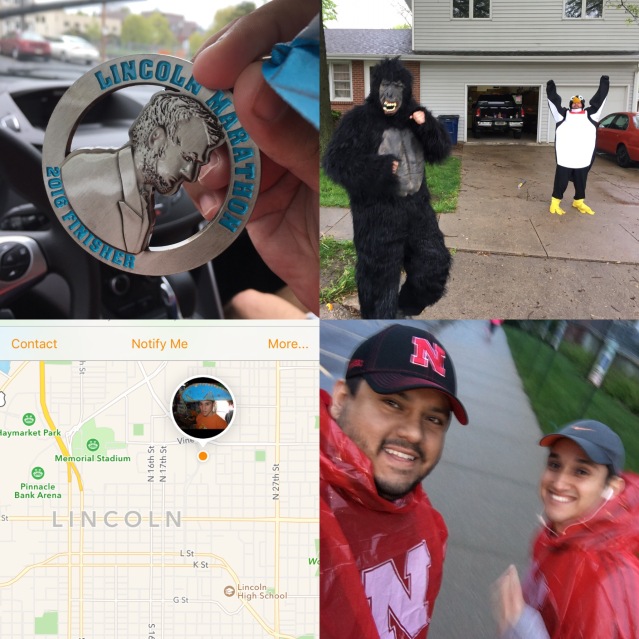
The people who were there for you
Posted on April 24, 2016
About a year ago, I told you about the people you were going to meet. Hopefully, in your lifetime, you will have met great people, people who inspire you. If not, look for them. They are all around you.
But what about the people who were there for you?
The other night, in one of the episodes on television of The Flash, the opening narration talked about how two kids (one The Flash and the other Zoom, the villain) grew up to be very different based on who was there for them at a moment of crisis. When Barry Allen, the kid who would grow up to be The Flash, saw his mother get killed and his father framed for the murder, Joe West was there for him. Joe, a cop, took in Barry as a son and helped raise him. When he was transformed into The Flash, Barry decided to become a hero and help people.
Zoom, on the other hand, was orphaned when his father killed his mother and himself after coming back from a war. He grew up in an orphanage where there was no one to love and care for him. In time, he became a criminal, then a serial killer. When he got powers similar to The Flash, Zoom decided to dress up like a superhero so that, in his own words, he could “give people hope. Then rip it away from them.” He became a super villain.
Not too long ago, there was a man with my same exact name shot and killed himself on the front yard of his house — and in front of his neighbors — as police attempted to arrest him. (The only reason I found out about it is because some anti-vaxxers cheered his death thinking it was me, but that’s neither here nor there.) This is not the first time something like this has happened, where two people share the same name and have very different lives. The book “The Other Wes Moore” tells a similar story. In it, two Wes Moores, both from Baltimore, grow up to be very different people. One is in prison while the other is now a successful community leader and author.
The common denominator in stories like these come down to the people around us. The people in the featured image above are my parents when they were dating. Although they got divorced shortly after I was born, they both remained very involved in my upbringing. Them and my aunts and uncles, and my grandparents. Heck, even my cousins helped raise me. And I was raised in such a way that I learned to take the best parts of them and apply them to my life.
From dad, I learned to fix things. He taught me to see complex machinery and systems and understand what makes them work. He showed me how no one piece in a big machine is more important than another. Engines might continue to work with one part broken or missing, but, eventually, the whole thing is going to break down without it. He also showed me how to be a loyal friend. There is nothing he would not do for his friends, and it’s the same for me. Be my friend, and I will die for you, or with you. (Though, let’s not test that just yet, yeah?)
From mom, I learned to be an advocate for the weak, the downtrodden. She never allowed herself to be a victim, and she taught me that victims need a champion to be there for them. I remember her many times going out the door to make the world a better place by helping someone, expecting little in return. Even today, she cheers us on to be there for others, and I look back on her acts of heroism to get inspiration to go ahead with my crazy ideas.
Even as an adult, I’ve learned a lot of good things from a lot of people. There was the lab manager who taught me about discipline and professionalism. The lab techs, nurses and doctors who looked after me like a son and correctly pointed out to me that I needed to do more with my life. Some of them even helped me get out of a very, very bad relationship. The list goes on and on of the good people in my life who have been there from the moment I was born until today.
And that’s just the people that I know about.
I am willing to bet you dollars to doughnuts that there are plenty of people out there who have been there for you but you don’t have a clue of who they were. Some of them you have not met. Others, you’ve met but only for a short time, yet they’ve made a big impact in your life…
When I was five or six years old, I was riding the bus from Juarez to Chihuahua with my grandmother. A young man on the seat in front of us was reading a really big book. I walked over and asked him what he was reading. He said it was a book on pathology. I asked him what it was, and he said it was the study of abnormal things. That quick conversation — cut short because my grandmother asked me not to bother him — changed a lot of things in my life. I kept that word, “pathology”, in my head until I was able to look it up at home on the encyclopedia. Then I discovered that it was a field of medicine, and that microscopes were involved. Then I nagged mom to buy me a microscope at a garage sale…
Then I looked at a leaf under the microscope, and I have not seen the world the same ever since.
Likewise, you need to be mindful of who you’re going to be there for, even when you’re not thinking of being there for anyone. That young man on that bus is probably in his late 50s or early 60s right now. He probably doesn’t know that he launched me into laboratory medicine, then epidemiology, then this. But he was so patient and willing to answer my childish questions (something about a duck was asked, as “pato” is the word in Spanish for duck). He explained to me a little bit of what he was reading. He didn’t have to, but he did, and my life is so much better now for it.
So I guess what I’m saying after over 1,000 words is that you should be thankful for the people who have been there for you, the people who will be there for you, and for the opportunity to be there for others. Even explaining the book you’re reading may make a big difference for others. Who knows? You might just change the world, even if only a little bit, and set it on a course to something better.
Though the body yells, “Stop!” the spirit cries, “Never!”
Posted on April 21, 2016
I’ll be attempting to run the Lincoln (Nebraska) marathon with my younger brother in about ten days, and, as is often the case with me and these things, I am not ready at all. The reason I am not ready is not because I don’t want to be ready. I want very much to be ready. It’s just that life manages to get in the way each and every time I try to focus on this. That, and I’m easily distracted.
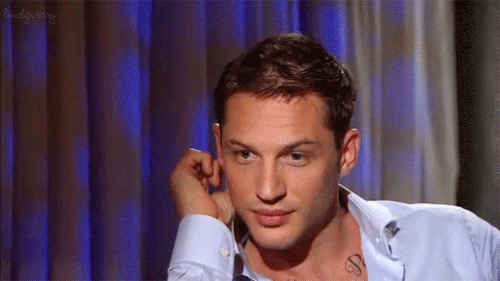
Oh! Hello there!
While the trip to Italy was a bit of a distraction, Mrs. de Najera and I did manage to walk between 8 and 12 miles each day. We walked everywhere, even when I had some gnarly blisters on my toes. We did it for the ten days that we were there, so I think that it was a good way to practice. Bonus, we walked up and down a ton of stairs, especially on the bridges of Venice and the town of Assisi.
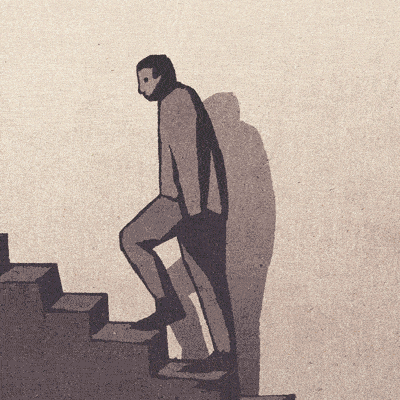
Some of them felt like they went on forever.
So I’m kind of hoping that those experiences, and the training runs before and after, are enough to carry me through. They probably won’t be, though. Yeah, I’m thinking negative thoughts when I should be thinking positive. After all, I’ll get to see my siblings and my mom, and it will be fun. Right? Right.
See, that’s the thing about running for me. People often suggest that I sign up for something as a means to keep me on track for some goal. It’s a good strategy, but then I end up not being prepared for that goal and I feel bad for not being prepared. I would much rather work toward being prepared, and then, once prepared, sign up for a race within a few days. But that’s not the way these things work.
Story of a thesis (Part IV)
Posted on April 20, 2016 3 Comments
In the first part of this series, I told you about Baltimore and the challenges facing the Charmed City. The second part was all about the available data, and what those data told us, which is a lot. In the third part, I told you the story of some kids and how their social network was peppered with victims of violence (not just gun violence). In this part, the next to the last part, I want to tell you about who is doing what for Baltimore.
First, an aside. I held the thesis proposal seminar last week, and it went really well. The proposal seminar is something that we need to do before we go full-on into oral exams (departmental and school-wide). It’s an opportunity to refine the proposal a little bit more and get some questions from students and faculty. Let me tell you, there were a lot of questions. (Most of them were good questions. A couple were things I’d show later in the slides.) So I’m at the stage where I’m refining the proposal a little bit, just tweaks here and there. Then I’ll meet with some professors, some advisors, some mentors, and then move into the exams. I’ll keep you all updated, of course.
(I’ll also post audio of the presentation in a future “Talking Tuesday” podcast episode.)
So who is doing what for Baltimore? This question is as complex as any in this whole endeavor because, frankly, there is a lot of money in doing something — anything — for the City. From violence prevention to nutrition, to parenting and other topics, there is a lot to go around for whatever individual and organization who wants to take on the task of doing it. I’m going to break down the groups into four categories: Religious, Private, Public, and Mixed. But I’m also going to mix them into those categories without going program-by-program and making this a thesis dissertation all of its own.
RELIGIOUS
There is no doubt that religion and religious organizations play a big role in the fabric of Baltimore’s society. This is because of the ethnic make up of the city as well as its history. In almost every neighborhood, you have a church or religious organization of some kind, and many of them are trying to improve the neighborhoods around them.
In fact, during the Freddie Gray unrest (or riot), it was religious leaders who went out to the neighborhood where there was most trouble and made a stand against the violence that was taking place. They then participated in discussions with the members of their churches to work on healing the city. This work continues still today.
A lot of the work that religious organizations undertake when it comes to violence is to bring everyone together in their faith and show more inclusion. There are also a lot of rallies, get-togethers, and prayer groups. You could say that some of their work is evidence-based, but not a whole lot of it. That said, there is plenty of evidence that feeling like you’re part of a bigger group — and that the bigger group accepts you — makes you less likely to get into trouble with or within that group.
If only all gang members went to church on Sundays and volunteered with said churches.
PRIVATE
Private organizations are a little harder to pin down because they can be made up of one person or only a few people. The bigger ones are easier to identify and understand what they’re doing, what their goals are, and how they evaluate themselves. It’s the little ones that I’m going to have trouble in finding and evaluating.
As I stated above, there is money for you if you want to do something for Baltimore. That is part of the reason why people make up their own non-profit or join a bigger one. It can be akin to a job, and you get the perk of doing something for your community while you’re at it. Yes, it lends itself to some abuse, but I have a belief that people are generally good. (I’m an optimist.) Of course, a lot of people have a personal stake in wanting to make Baltimore better. Who among us wants to live in a war zone?
There are also the people and organizations who take a personal approach to preventing violence in Baltimore. They have lost someone to violence or have been victims themselves. Subjectively, I think these organizations are the most driven of the bunch. They have a deep-seeded sense of wanting to make things better, and that sense is at an organizational level… It’s in their DNA, so to speak.
PUBLIC
The third group of organizations are the public ones, most of them spearheaded by the local or state governments. These organizations are, in my opinion, the most accountable ones. If you’re a church, you don’t really have to be accountable to anyone. If you’re your own group, maybe you’re accountable to the IRS on all the donations to it. But if you’re part of the government, you’re accountable to the citizenry and the politicians. Believe me, they don’t like to be embarrassed.
Let me tell you a story…
“Safe Streets” is a program run by the Baltimore City Health Department. The purpose of the program is to send outreach workers into parts of the community in order to “interrupt” situations which could escalate to violence. In order to do this, the program uses ex-offenders and former gang members, people who know the streets and the players in those streets. These outreach workers then guide those they come into contact with toward drug rehab programs, mental health services, and other forms of assistance.
The program is a good one from the point of view of how it should operate. It has even been evaluated and found to be successful in reducing violence in the areas where it operates. There is even some effort to expand it to other parts of Baltimore. However, in July of 2015, several outreach workers at one of the sites were arrested and found to have guns and drugs with them (on their person) and in the Safe Streets office where they were supposed to be working:
“Two of those arrested are members of the Baltimore City Health Department’s Safe Streets Program. The program uses outreach workers, including past offenders, to go into the community to help to reduce violence. Police said they also arrested six other people in addition to the two Safe Streets workers at the 2200 block of E. Monument Street. The Safe Street workers were identified as Ricky Evans and Sherri Jordan. Most of them charged with drug possession after heroin and guns were discovered during a search which started with a 911 call for an armed robbery report early Monday morning. During the robbery investigation, police found a vehicle they were looking for parked outside the Safe Streets office. Police said three men came out of the building and went back inside and ran up the steps. Police said they ordered everyone outside and during searches of the building found handguns, ammunition, heroin and drug paraphernalia.”
This was a big black eye for the City of Baltimore and for the health department in particular. Right in the middle of a huge increase in gun violence, the very people entrusted to do something about it were part of the problem. The Safe Streets office where they were arrested was closed for a while and has recently re-opened with increased scrutiny of outreach workers and more oversight of their overall functions.
What would have been the outcome if this would have been a religious or private organization?
MIXED
Finally, we have the mixed groups. These are the groups made up of different kinds of people who are accountable to — or paid by — different types of organizations. You may have a partnership between a church and the City, or between a private organization and a church… Or between all of them.
These are also tricky to understand because the different kinds of people within them have different expectations or standards to meet. For example, a city worker may be sent to work with a church with the expectation that they just do a job, while the bigger expectation of slowing violence around the church would be up to the church itself. Know what I mean?
THE THIRD AIM
To recap: My first thesis aim will be to look at the individual and neighborhood characteristics of Baltimore and how these explain the variance in gun violence counts around the city. In essence, how do poverty, education, drug use/abuse, and/or gang membership explain why one neighborhood sees 15 homicides and 30 shootings while another sees none (and others see numbers in between)?
The second thesis aim is to map out the social network of homicide victims through the use of different sources of data and to understand these maps. As was seen in Chicago, do small social networks in Baltimore account for a lot of the violence? And where in the social network do homicide victims fall? Are they on the periphery looking in, or are they surrounded by other people at risk, other victims, and/or other perpetrators?
The third aim is to take inventory of who is doing what in Baltimore and see if they intervene on the factors identified in the first two aims. For example, if aim #1 identifies that a lot of the counts of shootings and homicides is explained by low levels of high school education, are the programs in place that are trying to deal with gun violence intervening so that kids stay in school? Are they then making sure that high school graduates find a meaningful job after high school if another big predictor of shootings is unemployment?
I’m not going to fully and completely evaluate every single program. Rather, I plan to take inventory of them, of answering the question, “Who is doing what for Baltimore?” So a bigger version of this blog post is what I’m envisioning.
ONE LAST THING
I was planning on doing a fifth entry into this series, but I think that it’s going to have to wait. I might write it as a stand-alone blog post on why strategies for intervention need to follow the evidence not only because it’s a good idea (and good policy) but because there really is no sense to just “going with your gut” on such an important issue. (Although, I’m a big fan of going with your gut on things. Some of my biggest accomplishments have been complete flukes.) So look for that in the future. For right now, I think these four posts have framed what I want to do… I hope they’ve framed it for you too.
Run the red light… I’ll pay the ticket
Posted on April 11, 2016 1 Comment
I was sixteen years old when I graduated high school. Did I ever tell you that? My birthday falls in January, so the school system wanted to hold me over until I was six-and-a-half before starting school. Mom wouldn’t have any of it. She had placed me in kindergarten at four-and-a-half, and I was doing great, according to her.
I was reading when I was two, my relatives say. There’s a story of my maternal grandfather taking me to the local pharmacist (who was the most educated man in that little town in northern Mexico) to show off my ability to put strings of letters together into sentences. That ability came from my maternal grandmother repeating to me the alphabet every morning as she fed me breakfast. She used a set of magnetic letters on the fridge.
That’s the way my mothers have always been. They push me to be better and better, no matter what stage in life I’m in. So it’s no surprise that I reached the eleventh grade at 16 and had collected all the requirements for graduation by going to night school and doing special projects. But, in typical Ren fashion, on the last day of school, I managed to forget to do one important thing…
The last day of school, all the seniors (and I) were required to clean out our lockers, get signatures from all our teachers that all of our assignments were done, and to turn in our books. I had a ton of books, and I hauled them around as I reported to Mrs. Wilson’s classroom at lunch to do my last English III exam. It was all essays, so it took me about an hour to write on topics such as the necessity of complete sentences and how essential it is to put a comma in the right, you know, spot.
I then hauled around the books some more as I went and got lunch. It was a quick sandwich with a soda and some dried fruit. I was far too excited to be done with that school to make my way into the cafeteria and deal with all the stupidity in there. (Food fights were commonplace at that school.) So I sat with the kids from car shop class and we talked about how Sam had a cesspool cleaning business and was making top dollar hauling away people’s crap, literally.
After lunch, I walked over to the book depository lady’s office. She was an older lady from the Philippines. A lot of the kids made fun of her accent while at the same time having a horrible Spanish accent of their own when speaking English. Hers was just more pronounced, I guess. That, and she looked Asian, which hardly any kid looked like. The school was 95% Latino, with Whites sprinkled in here and there and maybe a handful of Black kids.
The book lady checked over my books, going down the list of the books I had checked-out to me at the beginning of the school year. “What is this?” she asked.
“What?”
“This book. This book is not on your list… And you are missing a book as well.” I looked at the books and realized that I had an English Literature book from the high school where I did my night school studies, and I was missing the English book to Mrs. Wilson’s class. I must have switched them at some point, and I had already turned in my books to the other high school. “You need to find that book,” she said. “I can’t clear you for graduation until you do, or you pay for the book.”
I forget how much the book cost, but I remember it brought tears to my face when I heard the price because I didn’t have that kind of cash on me.
My first step was going to the principal’s office and appealing to him. I remember my lips quivering as I talked to him. I was just very frustrated because I was looking forward to being done with it all, all the school work, all the stress… All the bullying. I was basically begging him to release me from the torture chamber that the school had become. The bullies, you see, don’t appreciate a kid two years younger than them being their equal. They didn’t appreciate me wanting to get out of that place and on to bigger things. They didn’t appreciate my plans to save the world.
After the principal denied my appeal to him and ordered me to either find the book or pay for it, I found myself walking home in a hurry. My hurried steps then became a slight jog. Minutes later, I was in an all-out run. I had come up with an idea, you see, and I needed to get it done in the next hour if I was to successfully be cleared for graduation on time.
Grandma, who was taking care of us as mom worked over the border, wondered what I was doing home so early. “Jump in the car,” I told her. “I’ll explain it to you on the way.” Of course, I was not allowed to drive the car. I was sixteen and didn’t have a driver’s license. But this wasn’t the time for technicalities. I explained to her my plan, and she agreed. She had to come with me as insurance that, if we got pulled over, she was a sensible adult who agreed of my plan.
The plan was to drive the 15 miles over to the other high school and find the book, give them their book, and head back to my high school to finish the process. Traffic wouldn’t be bad since it was the middle of the day. Still, I was flying down the streets and on to the highway toward the other school. “We might not make it on time, grandma,” I said to her, my lips still quivering.
“Don’t worry,” she said. “If you see a red light, run it. I’ll pay the ticket.”
That last part was a joke we’ve told in the family for a long time. My cousin, who was penniless at the time told that to my uncle. The joke was that my cousin had no money to do so if there was a ticket, so why even suggest it? This time, however, I took my grandmother at her word not because she would have (or could have) paid for a ticket but because she just always had a way of getting away with things. She passed that on to my mother, by the way. And I hoped it was passed on to me, especially that day.
I got to the other school and parked out front. I ran inside and asked to speak to the book depository person. He was an older man who smiled when I told him what had happened. “I was wondering what that book was doing here,” he said. He had placed my book aside. We did the book exchange, and I ran out of there and back into the car. Grandma thanked Almighty God for the miracle of finding the book so quickly.
I did too.
Twenty minutes later, after driving like a bat out of hell back to my school, grandma sat in the car as I ran in to finish the sign-out process. She listened to Gospel radio while she waited, of course. After a few signatures here and there, and getting the book back to the lady at the depository, I was done. I was really, really done. I threw the last few things I had in my locker into the back of the car and drove back home.
“That’s it?” Grandma asked.
“Pretty much,” I said.
“What’s next?”
“I don’t know, abuelita,” I replied with the biggest grin on my face. “How about we save the world?”
***
It’s been 21 years since that day, and I still remember it very clearly. I guess it was all the adrenaline of the situation. It wasn’t that I was not going to be allowed to graduate. I’m pretty sure I would have. It’s just that the process for me to get out of a place I absolutely hated was delayed, and, at the time, that delay seemed to be derailing everything. And, frankly, how is a High School English book worth $250?
Funny how some things stick with you and bubble up again when you’re driving [redacted]mph on I-97 into Baltimore. 😉
Eating just a little bit better now and then
Posted on April 8, 2016 3 Comments
On the last day of our trip to Italy, my wife and I were sitting at a coffee shop enjoying a very strong and very expensive coffee. As we looked out the front door, we saw a woman with three young boys sitting on a small bridge. (Venice has a lot of bridges.) All three boys were eating sandwiches wrapped in napkins and drinking bottled water. My wife snapped a perfect picture of them:
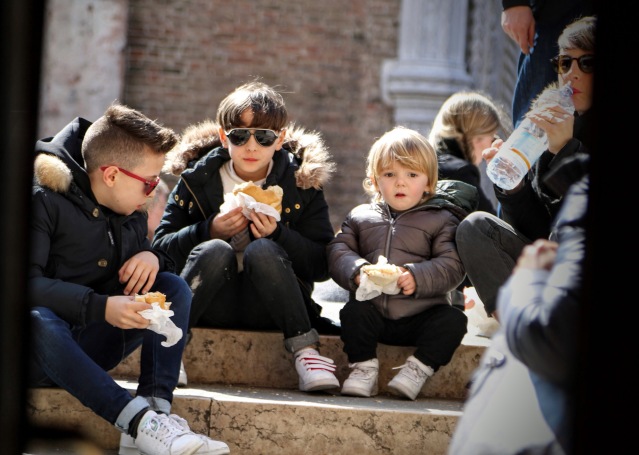
Nom! Nom!
Look beyond the hipster attire for a second and look at what they were eating. These were more than likely homemade sandwiches accompanied by water, not sugary drinks. I bet you dollars to donuts (or euros to, uh…) that very little of what they were eating was processed. I feel safe in my bet because very little of what we ate when we were there, even the stuff bought at the small shops in the touristy areas, was processed. Also, all drinks, even the sugary ones, had regular sugar in them, not any kind of syrup.
Now that we’re back in the States, it’s been hard to replicate the European experience with regards to food. So much — too much — of what we buy at the grocery store is processed. Worse yet, if you want to get something a little fresher, it’s a lot more expensive. And that’s us with the advantage of having a couple of grocery stores within a few minutes from our home. It’s much, much worse in cities like Baltimore where food deserts and food swamps abound.
The lack of readily available fresh food is one of those structural problems that is causing a lot of public health problems right now, and things are not going to get any easier. Too many of us are relying on these processed foods every day, and too many of us are overweight or obese, increasing our risk dramatically of developing diabetes. (That reminds me that I need to go for a long jog tomorrow.) So what do we do? What can we do?
Looking at Baltimore, for example, food stores that offer nutritious food will not open in the food deserts and swamps if there is high crime. There is going to be high crime as long as poverty is abundant. And there will be poverty as long as companies won’t hire minorities at the same rate that they hire members of racial and/or social majorities. And companies won’t hire equally until there is a cultural change whereby minorities are not regarded as unreliable and prone to crime. In essence, we have to attack the causes of the causes (of the causes) of lack of good food if we’re going to make a dent in the coming epidemic of chronic disease.
Good luck with that, right?
And Europe? Europe is on its way to where we are here in America because the homogeneity of that continent is changing with immigration from Northern Africa and the Middle East. Countries that are seeing these immigrants arrive are reacting rather badly, shunning away the immigrants to the poorest corners of their cities instead of welcoming them and integrating them into their respective societies. What Europe is going to end up having, if they don’t do already, is an expansion of food deserts and swamps like we do, and all the other public health problems that come with racial/ethnic/national bias will come along for the ride.
All they had to do in Europe — like we have to do here — is realize that everyone truly does deserve a fair shot at a good job, a safe place to live, good schools for their children, and good food to buy and take home to cook. It’s not rocket science, and it’s not asking for miracles. But we would much rather have discussions about what group of people to dehumanize and blame next. That’s how we roll, I guess.

